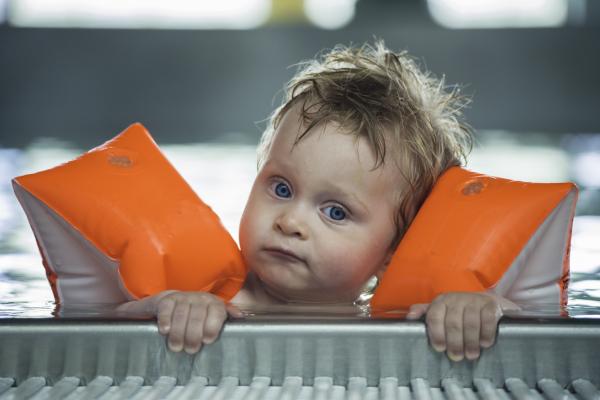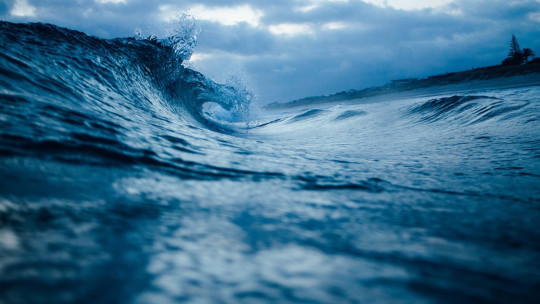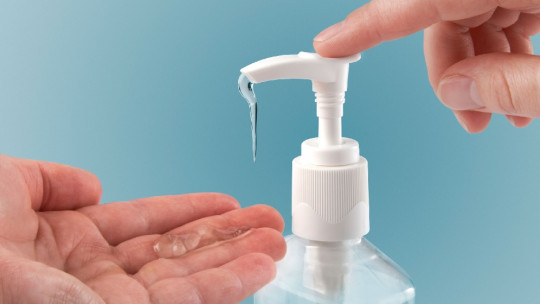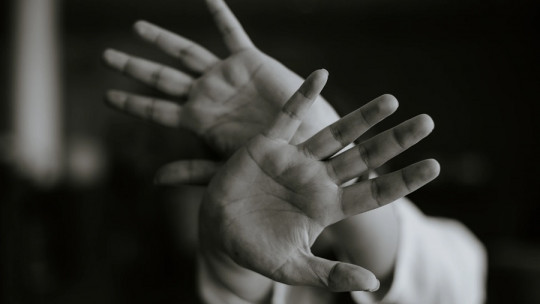Many people have a extreme fear of water , they may conjure up images of themselves dying in water, drowning, etc. There are people who are not only afraid of the sea, lakes, rivers, etc., but they are even afraid of a stream or, simply, of water touching their hands. The fear of drowning is a rational and logical fear that people who do not know how to swim have, but people who have phobia of water They experience high levels of anxiety when faced with any type of water, from the sea to small puddles. Some can’t even look at photos in which water appears. They are aware that they are not going to drown in a bathtub, but they cannot help but have thoughts of death. In this PsychologyFor article, we provide you with some tips that can help you overcome the fear of water
Symptoms of fear of water
People who are afraid of water may have some of the following: symptoms:
- They try to avoid water at all times.
- They experience anxiety or panic attacks when faced with thoughts related to water.
- Some people avoid bathing, which interferes with their hygiene.
- When they see water, they begin to hyperventilate, with an increase in heart rate and breathing.
- They may faint or feel weak if they see water.
- Sweating, shaking, crying and other signs of loss of control.
The symptoms vary depending on the degree of the phobia and each case.

Treatment to remove fear of water
In many cases, treatment is not necessary until the person’s life is altered by fear. However, if the fear affects social relationships or the activities that the person carries out, the appropriate treatment must be sought to overcome the fear of water.
The exposure therapy It is the treatment of choice for this phobia. There are two modalities: live or virtual exhibition. In both modalities, the person is exposed to the feared stimulus and learns to “unlearn their fear” of water.
In addition to exposure therapy, some doctors prescribe psychotropic drugs in a complementary way with the aim of reducing panic attacks when faced with water, but it is important to remember that psychotropic drugs have withdrawal symptoms and should be used in the short term.
Some tips to lose the fear of water in children
Many children are afraid of water or swimming. If this is your case, here we show you some tips you can follow to Help your child lose their fear of water and learn to swim
Develop a positive association with water
Explain to your child that the water is safe, the fun games that can be played in it, etc. The goal is for your child to overcome their fear of water and feel safer. A first step to confront fear can be to put your hands and feet in the water, sit on the edge of the pool, etc.
Encourage games in the water
Throw objects in the water and ask your child if he can give you the toy again. In this way, it comes into contact with the water with a well-defined and fun objective. He can also be encouraged to blow bubbles with water and make sounds. Thus, with these fun games the child will approach the water without fear.
Establish steps that your child must follow
- Tell him to start by putting his foot in the water and gradually increase it.
- When he can get his body in far enough, ask him to wet his face.
- Then tell him to try submerging his face in the water.
- Remind him that he is not alone and not to be afraid to progress.

Tips to remove the fear of water in adults
Here are some tips that can help you in this process:
- You can perform relaxation or yoga practices It’s about doing any activity that you find relaxing. Having adequate levels of anxiety in your life to overcome a phobia is essential.
- Find more information about the feared stimulus. Having information can help you deal with water with appropriate strategies, but it is not about thinking about the phobia all the time because it could make it worse. It’s about knowing more about your phobia to overcome it, not to stay trapped in it.
- Observe yourself, that is, know your body’s reaction in order to modify some aspects that are necessary. For this, it can help you to go to groups where there are people with the same phobia as you and listen to what things have helped them in their process. In addition, these types of groups make you see that there are more people who experience the same thing as you and that way you won’t feel alone.
- Connect with people who are supportive of you in which you can trust, who help you and reinforce your progress.
This article is merely informative, at PsychologyFor we do not have the power to make a diagnosis or recommend a treatment. We invite you to go to a psychologist to treat your particular case.
If you want to read more articles similar to How to lose your fear of water we recommend that you enter our Clinical Psychology category.









